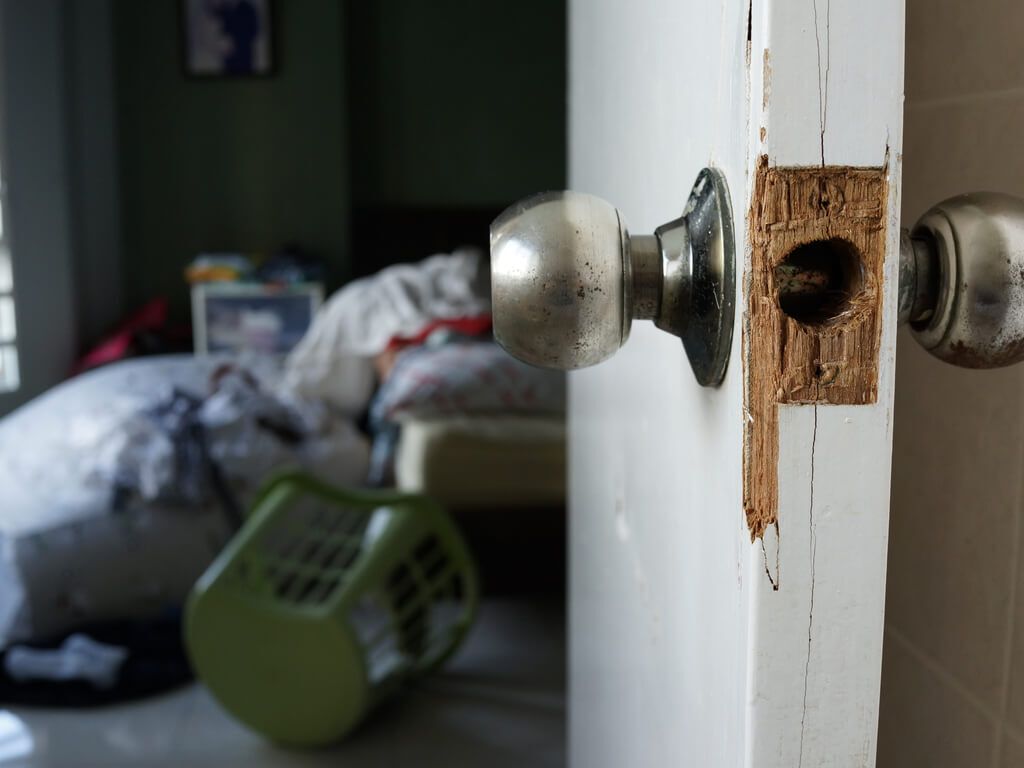What Property Damage Can My Landlord Make Me Pay For?

Most people who live in apartments don’t own them; people rent them out in what’s called a leasing agreement with the person who really owns the property, the landlord. They write out a contract for the renter, or tenant, to sign and agree to, and then for an agreed amount of time, someone can live on the landlord’s property. Typically, these contracts, or leasing agreements, document what the landlord and the tenant do in the event of property damage.
In some cases, if there is damage to the property that the tenant discovers, this is on the landlord to pay for. When the tenant has caused damage to the property, or the landlord finds parts of the property damaged when they weren’t before the tenant moved in, the tenant is supposed to pay for it. There are exceptions to these rules. There are types of property damage that the landlord cannot charge the tenant for and damage the landlord can sue for if the tenant doesn’t pay.
What Property Damage the Landlord Pays for
A landlord has to pay for several kinds of property damage. These are the kinds of damages that are out of the tenants’ control but within the landlord’s.
- Weather damage – Tenants are not responsible for damages caused by the weather. If a storm damages the roof or siding of the property, the landlord is responsible for repairing it.
- Prior damage – If the previous tenant did not pay for property damages they caused, the current tenant is not responsible for the damage. This can pertain to anything from broken floor tiles and chipped paint to holes in the wall.
- Malfunctioning and aging appliances – Most residential properties come with refrigerators, stoves, and ovens, and these are the landlord’s responsibility to repair or replace. This includes, but is not limited to plumbing and electrical work, which are the landlord’s responsibility on commercial property as well.
- Personal injury – If the tenant sustains an injury because one of the three prior examples was not fixed or replaced by the landlord, the landlord is responsible for those injuries.
What Property Damage the Tenant Pays for
What the landlord doesn’t pay for, the tenant does, with few exceptions. These are the kind of damages that are the direct result of the tenant.
- Internal property damage – Any damage caused by the tenant, such as holes in walls, broken cabinets, and newly chipped paint are the tenant’s responsibility to repair. If something wasn’t recorded to have been broken or damaged before the tenant moved in, the tenant is on the hook for it.
- Unpaid rent – If the tenant misses rent, they are under contract to pay it to the landlord. This also applies to broken leases; if the tenant breaks a lease, they owe the landlord all of the rent until they would have paid.
- Leaving property in the apartment – Many leasing agreements state that the tenant is to leave the property as they found it. This would include not only keeping things in the same condition but not leaving things that weren’t there before. While landlords can agree to keep certain items, a tenant can’t leave things behind without permission. They then become responsible for the cleaning costs, whether that be the cost of removing furniture or literally scrubbing a toilet.
When a Third Party Damages the Property
If a guest of a tenant damages the property, that’s the same as the tenant damaging the property themselves. The same cannot be said if there’s an unassociated third party.
For example, if a neighbor hits a baseball into the house, damaging the siding or a window, they are responsible for the repairs. The question does come up whether it is the tenant’s or landlord’s responsibility to pursue the neighbor to pay for damages. There are clauses in leasing agreements that can require tenants or landlords to pursue these kinds of damages.
When the contract doesn’t help, it cannot become a fight between the tenant and the landlord on who is responsible for pursuing the repairs. There isn’t any law that sets this in stone, with arguments being made for making both parties responsible. In situations like these, you would need a real estate lawyer to advise you on what you need to do.
Contact the Real Estate Lawyers at Mazzoni Valvano Szewczyk & Karam
You should understand everything you’re responsible for before you sign a leasing agreement. The real estate lawyers at Mazzoni Valvano Szewczyk & Karam can confirm everything you and your landlord/tenant are responsible for in the contract. Don’t reach the end of the lease, and find yourself responsible for property damages you weren’t prepared to pay.
If your landlord or tenant tries to take advantage of you or charge you for something you’re not responsible for, we can help. Contact our firm with your situation and contract, and we’ll get to work protecting you and holding the guilty party(s) accountable.

